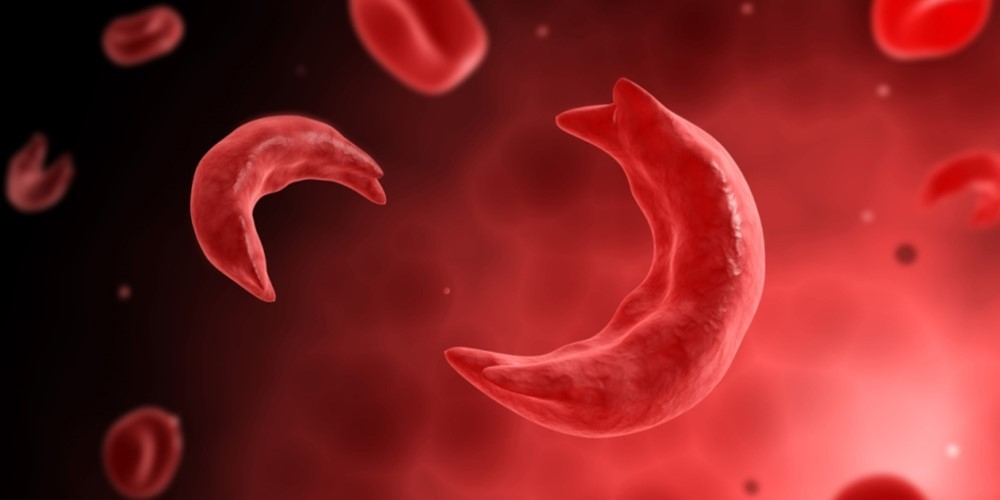MJ Reduces Pain and Discomfort in Sickle Cell Anemia Patients
A new study by a team of medical researchers from the University of California shows that the use of MJ (marijuana) significantly reduces discomfort and chronic pain associated with sickle cell anemia symptoms. The research, authored by Dr. Kalpna Gupta and Dr. Donald Abrams, was published in the journal JAMA Open Network.
“Overall, we found that vaporizing plant extracts with an electronic device provides a rapid, strong, and long-lasting pain-relieving effect for managing the painful symptoms of this disease. Importantly, we did not observe any of the negative side effects commonly associated with other widely used pharmaceutical painkillers,” said Dr. Gupta, a professor of applied medicine at the Center for Therapeutic Cannabis Research at the University of California, Irvine. “Additionally, I want to highlight that using MJ extracts as a substitute for pharmaceutical painkillers can help protect sickle cell anemia patients from the risks of developing physical and psychological dependence on opioids, which are the main active ingredients in many such medications. Of course, before introducing cannabinoid-based medicines into widespread clinical practice, we need to conduct further tests with a larger group of volunteers and study the long-term effectiveness of this treatment method to rule out any potential negative consequences from frequent and prolonged MJ use.”
Study Details and Results
The double-blind trial of cannabinoid extracts involved 23 people diagnosed with sickle cell anemia, divided into test and control groups. During the experiment, participants went through two five-day trial periods. In one period, some volunteers used therapeutic MJ extracts, while others vaporized placebo oils with no psychoactive or physiological effects. The trial periods were separated by a 30-day break, after which the groups switched roles to further verify the healing effect of the cannabis oils. Throughout the experiment, all participants continued to use various opioid medications prescribed by their doctors.
The MJ extract used in the study contained about 4.4% THC and 4.9% CBD of the total active ingredients. After each session, researchers recorded participants’ subjective observations about their overall condition, noting a gradual decrease in pain intensity among those who received cannabinoids. By the end of the trial, members of the test group reported a significant reduction in pain, saying they no longer felt discomfort during physical activities like walking. They also noted substantial improvements in sleep quality and duration, as well as a better overall emotional state due to the pain-relieving effects of MJ.
Background on Sickle Cell Anemia and Pain Management
Sickle cell anemia is a blood disorder characterized by the production of abnormally shaped hemoglobin molecules, resulting in red blood cells that take on a sickle shape. This abnormality leads to blood flow obstruction, causing symptoms such as anemia, chronic pain in the limbs, and severe discomfort during any physical activity. Until now, due to the lack of direct treatments for the disease, doctors have used various opioid substances to manage the associated pain and discomfort. However, this approach carries additional health risks, such as general lethargy and the potential for developing a physical dependence on these substances. As early as 2018, private studies began to report the effectiveness of MJ and its extracts in treating pain and discomfort related to the disease, without the risks associated with pharmaceutical painkillers.
“It’s worth noting that using MJ and its extracts for pain management is already the most common application of medical cannabis, according to data from both doctors and patients,” said Dr. Gupta. “We still can’t say for sure which type or form of MJ is best for suppressing pain associated with sickle cell anemia. In our experiment, we used plant oil extracts to minimize lung strain and avoid potentially dangerous impurities and combustion byproducts from smoking MJ flowers. However, it’s possible that other forms of MJ extracts, such as oral oil capsules or even the plant’s flowers containing other cannabinoids and terpenes, could have an even stronger, faster, and longer-lasting effect on patients’ pain.”
Future Research and Conclusions
Since vaporizing plant extracts also helped the control group during the second phase of the trial, the study’s authors concluded that cannabinoids definitely provided pain relief. However, to confirm the strength and duration of the observed effect, the researchers want to conduct another trial with a larger group of volunteers who will not use prescribed opioid painkillers during the tests.
“Considering all the factors from this and other studies on MJ as a pain reliever, we are confident that the reduction in discomfort is due to cannabinoids, not pharmaceutical drugs. Nevertheless, the next test should be conducted without the use of other medications to determine the exact strength of MJ extracts as a painkiller, without the confounding effects of concurrent opioid use,” said Dr. Abrams.



